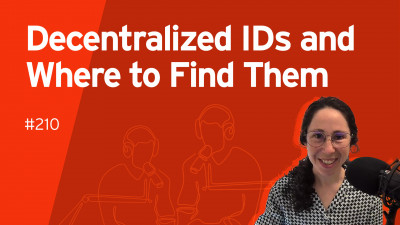Back in February (oh, how time flies! Just to think that it was right before the beginning of the COVID-19 pandemic…) I wrote a blog post looking at Oracle’s ambitious plans for developing its cloud strategy and expanding its worldwide infrastructure footprint. The post was titled “Will 2020 Be the Year of Oracle Cloud?” and just five months later the company has already demonstrated that it does not just finally have a promising vision for Oracle Cloud, but also a strong commitment to delivering on it.
A week ago, I attended an online event (yet another sign of the post-COVID times) hosted by Oracle’s Larry Ellison, where he spent a whole hour outlining his company’s recent achievements. And those are quite impressive indeed. The company’s cloud infrastructure shows significant growth not just in customer adoption, but physical size as well – currently, Oracle Cloud already has 24 regions worldwide, same as AWS, and planning to reach 36 regions by 2021. Very attractive pricing for customers with massive egress traffic requirements has already made a few prominent companies switch to Oracle from other clouds to reduce their costs – perhaps the most notable being Zoom.
However, as I mentioned a few times in earlier posts already, Oracle has finally learned to focus their marketing efforts not on pricing alone, but on their unique differentiators – capabilities no other cloud service provides currently have. The key buzzword of this strategy is of course “autonomous”. Starting with the Autonomous Database in 2018, Oracle has brought Autonomous Linux to the market a year later and this time, Autonomous Data Guard was announced as a service to protect business-critical data in the cloud from disasters and network outages. Sealed from any external administrative access and powered by artificial intelligence, autonomous solutions largely eliminate the possibility of human negligence, misconfiguration, vulnerabilities left unpatched, or many kinds of malicious activities.
The biggest announcement however was that autonomous services, which for several years were only offered as a part of Oracle’s public cloud portfolio, are finally available in the company’s private cloud platform, Cloud@Customer. Powered by the next-generation Exadata Cloud@Customer platform, Oracle’s Autonomous Database, with all its performance benefits and security features, is finally available to customers which for various reasons were avoiding the public cloud. While the hardware and the data reside on the customer’s premises, the infrastructure is fully managed by Oracle Cloud’s engineers and the pricing is equal to the one in the public cloud.
Thanks to the company’s cloud infrastructure platform which maintains a strict separation between the cloud control plane and customer instances and ensures that Oracle’s engineers can never access sensitive customer data, this allows for completely new hybrid deployment scenarios. For example, Oracle can now build a new cloud datacenter for a single customer and operate it as a dedicated cloud region with full feature parity with its public cloud and the same unified management console. It is by no means a cheap solution with pricing starting at $500k per month, but this just announced service already has several early adopters.
Even though Oracle has entered the cloud race significantly later than current market leaders, it had an opportunity to learn from their mistakes and avoid repeating them. Instead, it focused on its unique expertise and made autonomous security the foundation of its development strategy. With the latest announcements of its Gen 2 Cloud@Customer platform, Oracle can offer its customers exactly the same functionality on-premises as in its public cloud, ranging from just the Autonomous Database to a full-featured private cloud datacenter with over 50 managed services. To the extent of my knowledge, no other major CSP has anything comparable to offer at the moment.
Last but not least, it’s worth mentioning that Oracle’s second-generation cloud infrastructure has been architected with a much stronger emphasis on “security by design”. Incorporating such features as advanced tenant- and resource-level isolation and off-box network virtualization, it can ensure that customers’ sensitive data is kept off-limits not just from “nosy neighbors” but from Oracle’s own administrators as well. Even though Oracle has never positioned itself as a security vendor, its cloud strategy clearly indicates that security is the company’s top priority and a foundational principle for their cloud infrastructure. This might be just the right thing you need in these turbulent times.











































